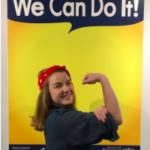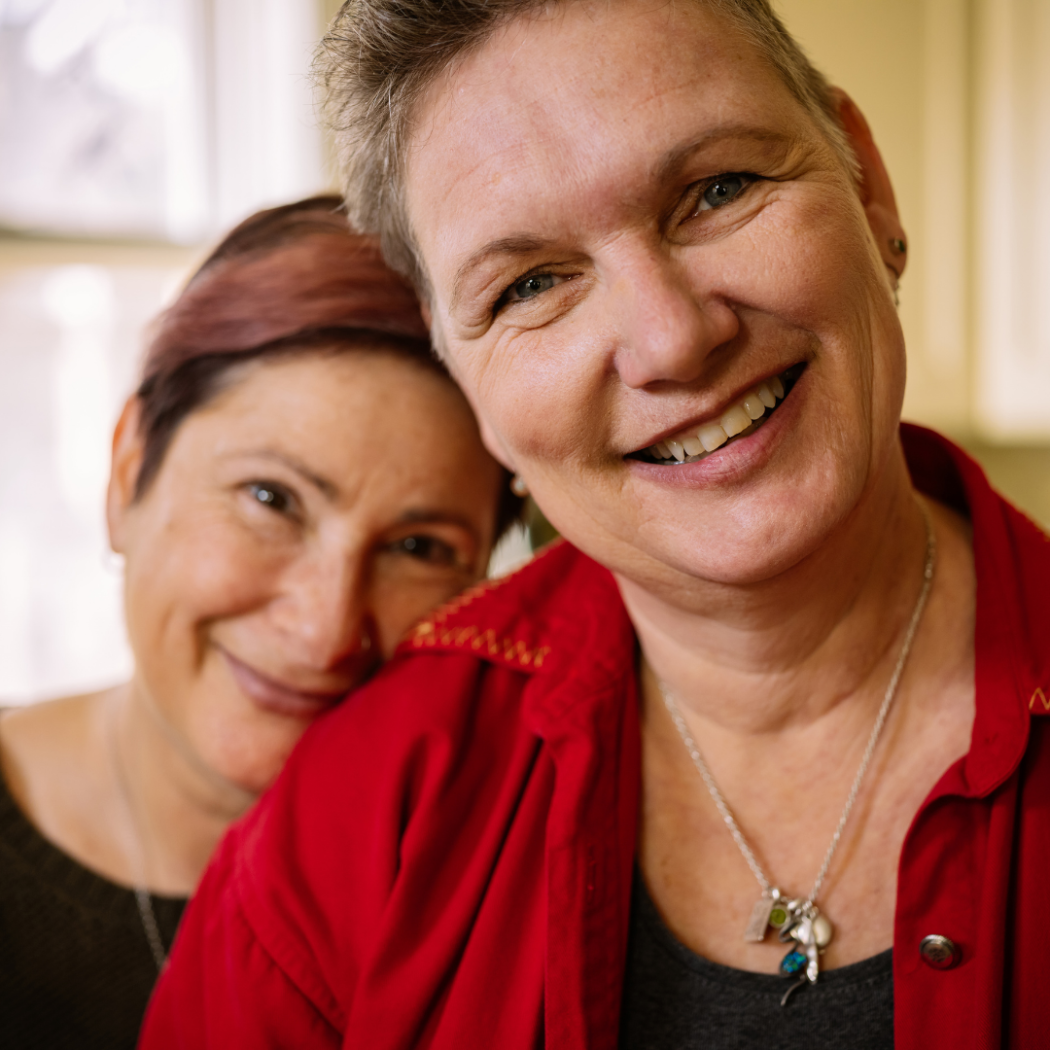As I’m tying up my role as a Pride consultant for Women AdvaNCe, I’ve been reflecting about what I’ve learned. What went well? What information needs to be talked about more? What does all of that mean for nonprofits and businesses doing similar work?
While not every LGBTQIA+ person may feel this way, here’s what I’ve come to believe and want organizations to know.
Diverse queer folks need to be at the forefront of leadership, decisions, and content creation.
We need diverse, queer individuals as leaders, as board members, as featured writers, as consultants, and as decision-makers. These people best understand their community’s needs and perspectives, ones that can save organizations from completely missing the mark. With LGBTQIA+ stakeholders, we also need LGBTQIA+ leadership.
And when I say “diverse,” I mean this: Bring in queer people who are of color, who are disabled, who are different genders. Don’t have just one white, gay man on your board and consider that “enough.” Instead, include (and fully support) a Black trans woman who has a chronic illness. And an Asian nonbinary person who has a low income. You need all of their viewpoints and perspectives.
While you don’t want to tokenize people or hire those who don’t meet the qualifications, you do want to make sure your leaders show who your organization supports. You want people from a certain community to be the spokespeople for that community. For example, you don’t want a white person speaking about Black people’s needs because they don’t truly know.
Corporations need to stop creating rainbow-colored ads if they donate to anti-LGBTQIA+ politicians.
In some research I compiled for an Instagram graphic about businesses and allyship, I learned several companies with rainbow advertisements also donate to anti-LGBTQIA politicians. The companies I came across include Coca-Cola, Glamazon, Xfinity, Walmart, CVS Pharmacy, Comcast, and AT&T.
This kind of behavior is disrespectful and frankly, pretty despicable. First, don’t support anti-LGBTQIA+ people and groups, and second, don’t market off of the queer community for your financial gain.
Representation matters, and we need it everywhere.
I’ve heard the term “representation matters” a lot, but I’ve really realized how true that is. We need to see depictions of and support for LGBTQIA+ people in any and every place. We need it in entertainment, in clothing, in food, in discussions with others. We need to see it in advertisements, in content creators, in celebrities, and in athletes.
According to Edutopia, this is because marginalized individuals — especially when they’re young — don’t realize what’s possible for them. What children see shapes their perspectives, goals, and outcomes.
Girls need to see that they can be doctors. Queer people need to see that they can succeed in their endeavors despite the discrimination they face. They need to know they’re accepted and that they matter. They need that hope and encouragement.
Pride Month doesn’t start or end in June.
To put together a solid LGBTQIA+ collection — whether in the form of articles, social media posts, clothes, or something else entirely — you need to start before June. That’s because on June 1 and equally throughout the month, you want to have a set schedule and content that’s ready to go.
Pride activities also shouldn’t end in June. LGBTQIA+ discrimination occurs daily, and the queer community needs your representation and support all year. While it’s perfectly fine to focus on queer content in June, don’t neglect it the other months.
Something I did to help with this that you can also do is create graphics and captions that the organization can post in the future. This way, the regular staff have readily available content they can post at any time of year, created by a queer individual. You can also continue Pride articles, events, and social media posts throughout July and share how to extend those activities on your own or with your organization.
We need to talk about both queer discrimination and queer joy.
The LGBTQIA+ community faces violence, trauma, body image struggles, health challenges, and more at higher rates, which needs to be discussed. Cisgender, heterosexual people need to be aware of these situations and learn how they can help and support that community.
But at the same time, for the sake of queer people who don’t need another reminder, let’s also talk about queer joy. For example, I shared graphics with lists of LGBTQIA+ TV shows, movies, books, celebrities, and more on Women AdvaNCe’s Instagram. This kind of representation is important because it gives the queer community both entertainment and — maybe most importantly — hope.
It’s okay (and good!) to be proud of who you are and to share that.
I came out to most of my family (and the Internet) fairly recently. I’m still seeing what it’s like to be a bisexual woman publicly. While I’ve found lots of joy, like posting cute pictures with my girlfriend on Instagram, I’ve also gotten lots of criticism about sharing this part of myself.
When I was offered the Pride consultant role here at Women AdvaNCe, I mostly felt excited — but I also felt nervous. While this didn’t necessarily mean I was definitively identifying as a queer person (in general and on LinkedIn), it was pretty close. I had to decide if I was open and ready to take that step and to share that part of myself even more publicly.
But now that the role has ended and I’m reflecting, I’m thinking of one word: grateful. I’m so grateful for this experience. I’m grateful for the people who don’t judge me for who I am and how I’m open about my sexual orientation in my career. I’m grateful a queer person led Women AdvaNCe’s LGBTQIA+ content. I’m grateful for Nicki and Antionette, the Women AdvaNCe co-directors, who never saw me differently and who always supported me however they could. I’m grateful for the important stories I could share about how discrimination affects individuals and families, as well as organizations that help.
Because other than Stonewall, that’s a huge part of what Pride should be about.
 Ashley Broadwater is a recent graduate of UNC-Chapel Hill, where she studied Public Relations in the Hussman School of Journalism and Media. She’s passionate about mental health, body positivity, relationships, Halloween, and Dad jokes.
Ashley Broadwater is a recent graduate of UNC-Chapel Hill, where she studied Public Relations in the Hussman School of Journalism and Media. She’s passionate about mental health, body positivity, relationships, Halloween, and Dad jokes.


There are no comments
Add yours